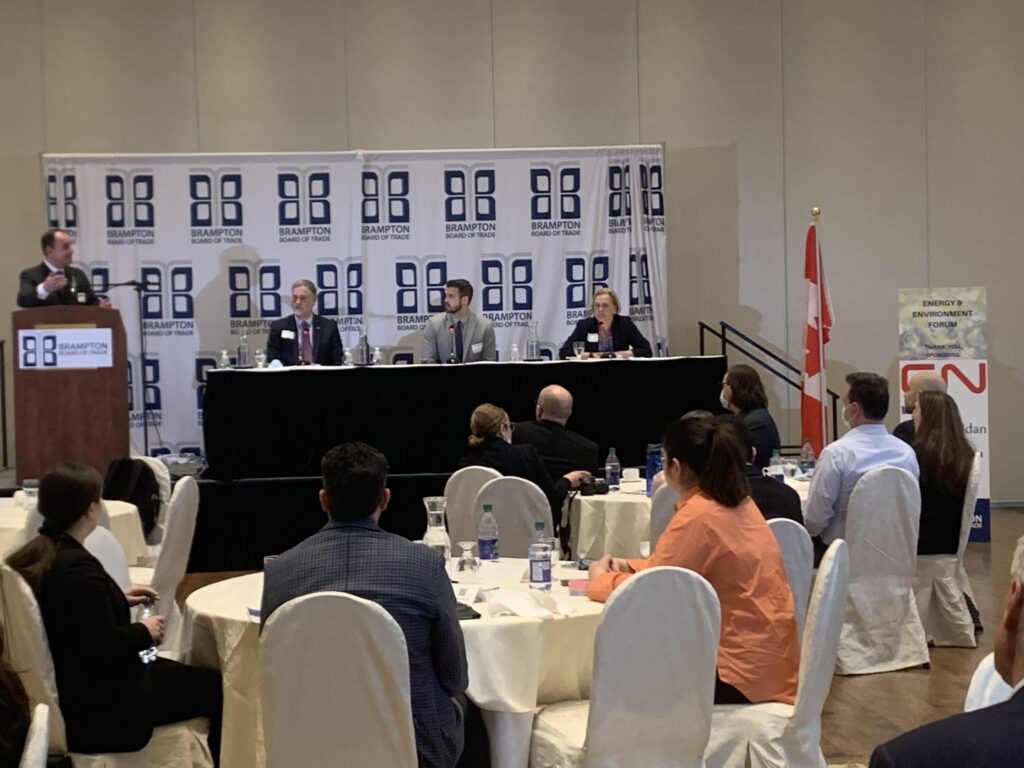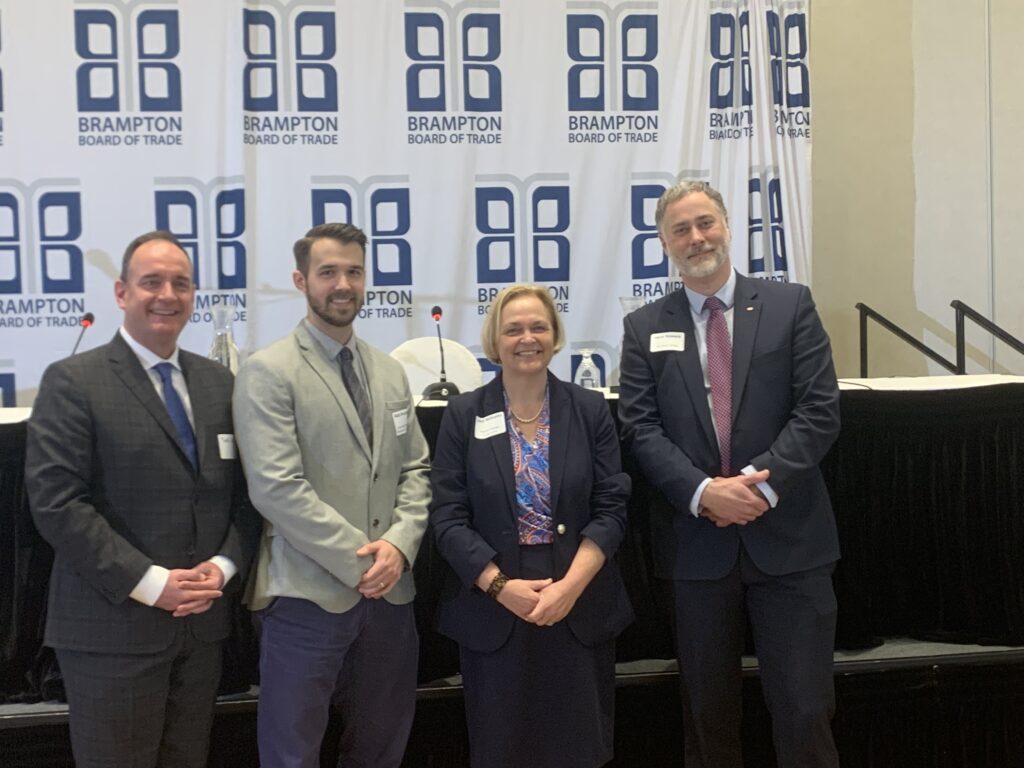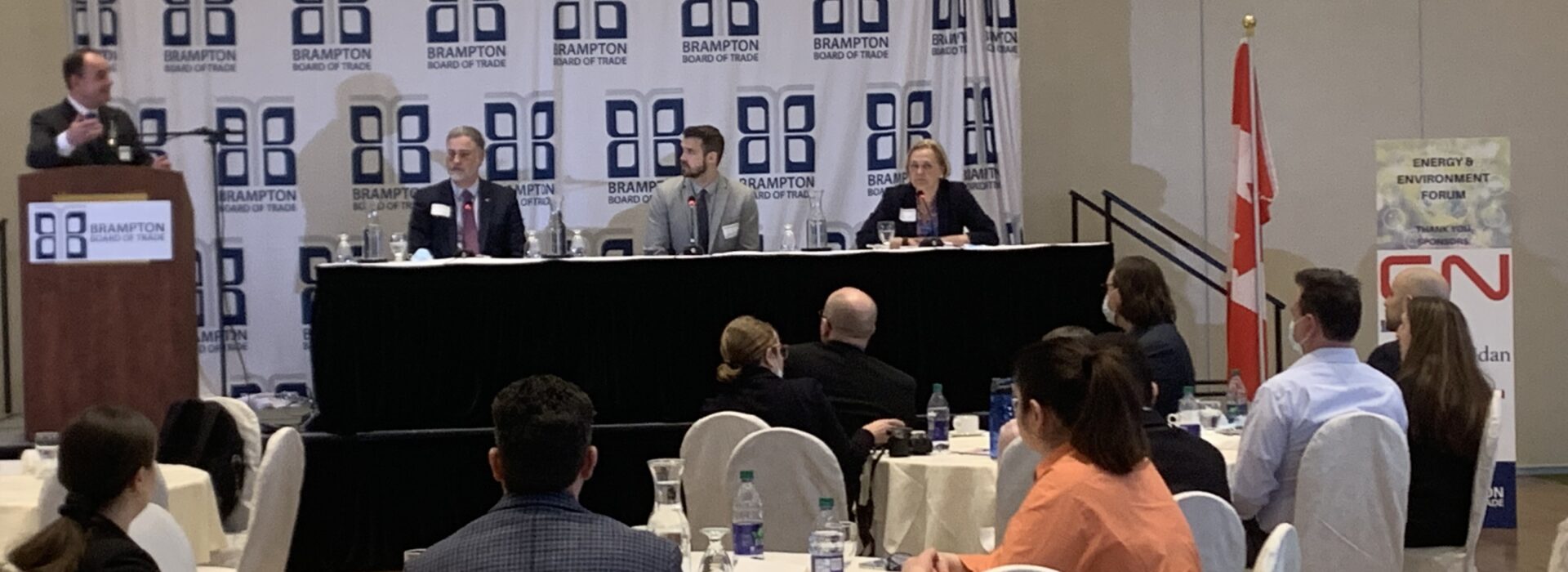
On Thursday April 21st, Partners in Project Green attended the Brampton Board of Trade’s inaugural Energy & Environment Forum. It was a positive return to in-person events and featured a dynamic roster of speakers. The forum engaged and informed members of Brampton’s business community on sustainability efforts and the theme of prospering on the way to net-zero.
After keynote addresses from Ontario Minister of the Environment, Conservation, and Parks, David Piccini, and Marion Organ, Coke Canada Bottling, the event closed with a panel discussion on net-zero opportunities for business with Herb Sinnock (Sheridan College), Lynn Williams (Alectra), and PPG’s Matt Brunette.
Net-zero refers to tangible and reportable reductions in GHG emissions that meet a balance of zero emissions through real reductions and credible & verifiable carbon offsets. The biggest reductions in GHG emissions are typically found in operations as companies implement energy efficiency projects or consume low-carbon energy. Programs and educational initiatives also play an important role in helping organizations achieve their operational goals.
As part of the panel discussion, Sheridan College highlighted the carbon reduction work they are doing at their facilities as well as how they are incorporating sustainability into their programming and curriculum. Alectra spoke to the importance of their ambitious reduction timeline and the biggest barriers they saw for their industry such as electrification and grid stability. PPG emphasized the importance of partnerships and how this notion has been central to the success seen by the members of the Energy Leaders Consortium on their sustainability and net-zero goals.
Partnerships allow organizations to come together and work collectively on complex issues. Through sharing knowledge, resources, and best practices, businesses can develop effective strategies to drive sustainability in their facilities and operations. Strong partnerships come in all shapes and sizes, with some of the most effective partnerships being the ones that are developed day-in and day-out through meetings, email, and phone calls. By working together, companies can identify opportunities and motivate each other to do more. Between 2013-2021, participants in the Energy Leaders Consortium implemented 608 projects which have saved 336.7 eGWH of energy and 1.5 billion litres of water, cut utility costs by $38.9 million, and reduced GHGs by 42,509 tonnes.
Many of the individuals and companies in the Partners in Project Green network see it as a moral obligation and are choosing to go above and beyond the minimum requirements of government policy, electing to set ambitious voluntary targets. This is apparent with some of our members such as Bimbo Canada, Toronto Pearson, Maple Leaf Foods, who has become the world’s first major carbon neutral food company. To Bimbo Canada, this challenge presents an opportunity to establish themselves as a market leader in their sector and helps them attract the best talent, with more and more people seeing the environment as an important consideration for employment. For Toronto Pearson, completing HVAC upgrades and resilient infrastructure projects has helped make progress on their ambitious GHG reduction targets and has provided an opportunity to address issues important to their customers and tenants.
Learn more about how partnerships and collaboration are driving sustainability action in the GTA by contacting Partners in Project Green.


